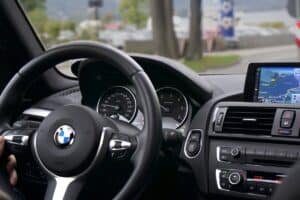
The idea of autonomous cars on U.S. roads consistently brings to mind impressions of safer, more streamlined driving, free from the limitations of human drivers. While the technology is being promoted as something that will drastically reduce accidents caused by such things as distracted or sleepy driving, the introduction of autonomous vehicles (AVs) on the roadway is revealing that it introduces degrees of complexity to car accident cases. The traditional concept of “fault” is being called into question, leading to complicated investigations and court proceedings that are far from straightforward.
Shifting Blame: Beyond the Human Driver
With a typical car accident, determining fault typically boils down to identifying a careless human driver. But when an autonomous vehicle is involved, the lines become blurred in a major way. Is the “driver” (or passenger) truly at fault if the car was driving itself? Or is it the manufacturer of the car, the creator of the software, or even the providers of the parts for failure? Accidents involving even semi-autonomous systems, like Tesla’s Autopilot or GM’s Super Cruise, already have shown how difficult it will be to sort out where human control stops and AI control begins. This shift from driver-centered liability to a potential multi-party blame game complicates the investigative and legal process exponentially, since it requires a thorough investigation of the technology itself.
The Black Box Problem: Accessing and Deciphering Data
Today’s autonomous cars are essentially computers on wheels, producing tons of data about their surroundings, internal operations, and the “decisions” they make every second. These data, sometimes referred to as “black box” data, include sensor data, GPS data, braking profiles, and system logs. While valuable to accident reconstruction and fault determination, this type of data is difficult to obtain and decipher. The manufacturers frequently claim proprietary interest in this type of data and make it difficult for accident victims and their attorneys to obtain. Even when data is retrieved, it may take specialized technical experts to interpret complex computer algorithms and operations, taking a lot of time and expense in a lawsuit.
Product Liability vs. Driver Negligence
Autonomous vehicles move car accident law more into the realm of product liability law. Where an accident is the result of a defect in the design, manufacture, or programming of the autonomous feature, the manufacturer or programmer could be held strictly liable. That would place a burden upon a victim to establish not negligence, but only that there was a defect and that it caused the injury. Deciding whether a system failure or a human operator failure to act when warned by a semi-autonomous system is, however, a gray area in the law. Courts are attempting to ascertain whether a human driver was properly warned to take control or whether the system itself failed and did not function as designed, creating new legal theories and no set precedents.
Evolving Regulations and Insurance Challenges
The regulatory landscape for autonomous vehicles in the U.S. is in its nascent stage. While several states have passed legislation regarding AV testing and deployment, there is no federal policy. This patchwork of state laws presents another challenge to liability claims. Moreover, the traditional insurance model premised on human drivers and corresponding risk levels is struggling to keep pace with the dynamics of autonomous technology.
Final Thoughts
Insurers are considering new policies and risk assessments that are based on the car’s technology and software, not solely the driver’s history. This evolving regulatory and insurance environment is such that car accident claims for autonomous cars are consistently making new law, and necessitate specialized legal expertise and an appreciation of potentially lengthy and technically involved proceedings.